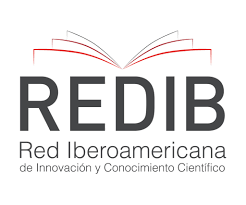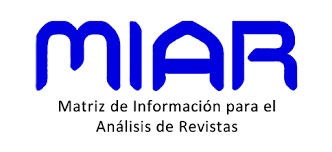The woman, in search of a lost identity?
DOI:
https://doi.org/10.51743/cpe.209Keywords:
identity, new feminism, queer theory, transfeminismAbstract
Elisabeth Badinter, after criticizing at the end of the 20th century a feminism that had become entrenched in uncompromising victimhood, calls for a conquest of equality for women that does not endanger their relationships with men. She thus agrees with prominent feminists who insist on a greater appreciation of femininity. In view of the current conflict between gender feminism and transfeminism, on the one hand, with the majority sectors of “traditional feminism”, on the other, it does not seem unreasonable to demand a revision of the anthropological bases of feminism, which includes a better understanding of what it means to be a person (male and female) and of a notion as misunderstood by Modernity as that of human nature.
Downloads
Global Statistics ℹ️
|
789
Views
|
495
Downloads
|
|
1284
Total
|
|
References
Alianza Contra el borrado de las Mujeres: https://contraelborradodelasmujeres.org/wp-content/uploads/2021/04/Análisis_LeyesID.pdf
Aparisi, Ángela y Ballestero, Jesús (eds.) Por un feminismo de la complementariedad. Eunsa, Pamplona, 2002.
Badinter, Elisabeth: XY. La identidad masculina. Alianza, Madrid, 1993.
Badinter, Elisabeth. Por mal camino. Alianza, Madrid, 2004.
Ballesteros, Jesús: Ecologismo personalista. Tecnos, Madrid, 1995.
Beard, M.R. (1972): Women as Force in History. Collier, New York, 1972.
Bell, Daniel: Las contradicciones culturales del capitalismo. Madrid, Alianza, 1977.
Blanco, B. "La reconversión del feminismo". Atlántida nº 6. 1991, Págs. 55-61.
Bly, R., Iron John, Plaza y Janés, Barcelona, 1992.
Bocchetti, Alessandra: Neofeminismo. La conquista de ser diferentes. Batlia, 1985.
Butler, Judith, El género en disputa: feminismo y la subversión de la identidad. Barcelona, Paidós, 2006.
Calvo, María: La masculinidad robada. Almuzara, Córdoba, 2011.
Castilla, Blanca: La complementariedad varón-mujer. Nuevas hipótesis. Madrid, Rialp, 1993.
Collange, C. Quiero volver a casa, Dossat, Madrid, 1979.
Cortina, Adela: Hasta un pueblo de demonios. Madrid, Taurus, 1998.
Elósegui, M. Diez temas de género, Hombre y mujer ante los derechos productivos y reproductivos. Eiunsa, Madrid, 2002.
Elshtain, J.B.: Public Man, Private Woman. Women in Social and Political Thought. Princeton, New Jersey, 1981. DOI: https://doi.org/10.1515/9780691215952
Figueras, J.: El feminismo ha muerto. ¡Viva la mujer! Eiunsa, Madrid. 2000.
Friedan, B.: The Feminine Mystique, W. Norton, New York, 1963.
Friedan, B.: The Second Stage. Summit Books, New York, 1981.
Friedan, B.: La fuente de la edad. Planeta, 1994.
Galbraith, J. K.: El nuevo Estado industrial. Barcelona, Ariel, 1967.
Greer, Germaine: Sex and Destiny: The Politics of Human Fertility. Harper and Row, New York, 1984.
Haaland Matláry, Janne: El tiempo de las mujeres. Rialp, Madrid, 2000.
Juan Pablo II: Carta a las mujeres. 1995.
Juan Pablo II: Hombre y mujer los creó. Cristiandad, Madrid, 2010.
López Moratalla, Natalia: Cerebro de mujer, cerebro de varón. Rialp. Madrid, 2007.
Llano, A. La nueva sensibilidad. Espasa, Madrid, 1988.
Marías, Julián: La mujer y su sombra. Alianza, Madrid, 1986.
Marías, Julián: La mujer en el siglo XX. 1990
Müller, Gerhard Ludwig (ed.): Las mujeres en la Iglesia. Encuentro, Madrid, 2000.
Offen, K.: “Definir el feminismo: un análisis histórico comparativo”. Historia Social, 1991 (9), pp. 103-135.
Parada Navas, J.L.: “La familia, ¿un valor? en un mundo en cambio”, en Carthaginensia: Revista de estudios e investigación. Vol. 27, nº 52. 2011, págs. 359-383.
Pernoud, Régine: La mujer en el tiempo de las catedrales. Granica, Barcelona, 1982
Solé, G., Historia del feminismo (s. XIX y XX), Eunsa, Pamplona, 1995.
Downloads
Published
How to Cite
Issue
Section
License
The author reserves the rights (copyright) of the published works, and the journal encourages and allows their reuse, from the preprint. The works are published in the electronic edition of the journal under a license "Creative Commons Attribution / Attribution-NonCommercial 4.0 International Public License - CC BY-NC 4.0", and can be copied, used, disseminated, transmitted and publicly exhibited.
The author / s partially transfer the property rights (copyright) of this work for the printed and online editions, provided that:
- The authorship and original source of its publication (magazine, publisher and URL of the work) is cited.
- Are not used for commercial purposes.
- The existence and specifications of this user license are mentioned.
It also declares to have respected the ethical principles of research and to be free from any conflict of interest.
"C.P.E." encourages the authors and the scientific community to the maximum promotion and dissemination of the works in their final version through:
1) Your list of contacts (emails) and social networks (Facebook, Twitter, LinkedIn ...).
2) Institutional repository of your University and public repositories (Mendeley, Cosis ...).
3) Scientific social networks (ResearchGate, Academia.edu, Kudos ...).
4) Personal or institutional website, blog, etc.
5) Google Scholar, ORCID, ResearchID, ScopusID, Dimensions, PlumX ...
6) Printed copies purchased directly and sent to specialists for reading and subsequent citation if appropriate.




















1.png)
1.png)

1.png)





.png)
.png)

.png)
1.png)
1.png)
